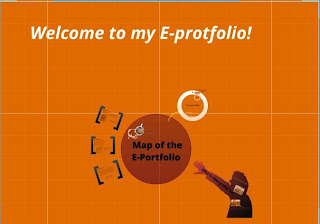This blog records
my professional development process as a language teacher, a language learner,
and a language lover. As a guild for you to locate what you might be interested
in easily, this Map will introduce the contents and the categories in this
blog.
To enjoy your exploration of this blog, please click the following
link for more interactive guiding:
After you go into the Prezi, click the gray arrow à to “animate” the Prezi
To locate a particular entry, please follow the folloiwng lable.
About Me: Self-introduction (my CV included) and my developing teaching philosophy
Professional development in Penn State
MA-TESL
|
APLNG 482 Introduction of Applied Linguistics
APLNG 484 Discourse Functional Grammar
APLNG 491 Second Language Acquisition
APLNG 583 Methods of Language Assessment
APLNG 595 Internship (ESL015)
APLNG 412 Teaching Second Language Writing
APLNG 493 Teaching English as Second Language
APLNG 581 Discourse Analysis
APLNG 587 Theory & Research in L2 Teacher Education
APLNG 589 Technology in FL/SL Education
APLNG
|
Professional development in TESOL-Ecuador program (TESOL-Ecuador): Internship and learning in Ecuador
TESOL-Ecuador
|
WL ED 444 Language, culture, and the Classroom
WL ED 483 Evaluating Schools’ Performance & ESL Programs
WL ED 400 Foundations of Second Language Teaching
|
My Teaching: My experiences of teaching ESL015 and shelter English in Ecuador
My Research: An archive for the research I did in the above classes
Meanwhile, this blog demonstrates the MA-TESL program objectives as
the follow list. For each entry there will be a label indicating the meeting
objective(s):
Objectives
of MA-TESL program (Form PSU, the Department of
Applied Linguistics):
- the
ability to design and evaluate instructional materials, technology, media,
and other resources that meet the specific instructional and language
related needs and abilities of students;
- the
ability to reflect on, critically analyze, and evaluate your own teaching
practices;
- the
ability to articulate a philosophy of language teaching grounded in
current language and learning theories;
- an
understanding of the complex social, cultural, political, and
institutional factors that affect language teaching and students' language
learning;
- knowledge
of research and research methods for studying language teaching and
learning;
- knowledge
of the teaching field (English);
- participation
in collaborative projects with others.


No comments:
Post a Comment